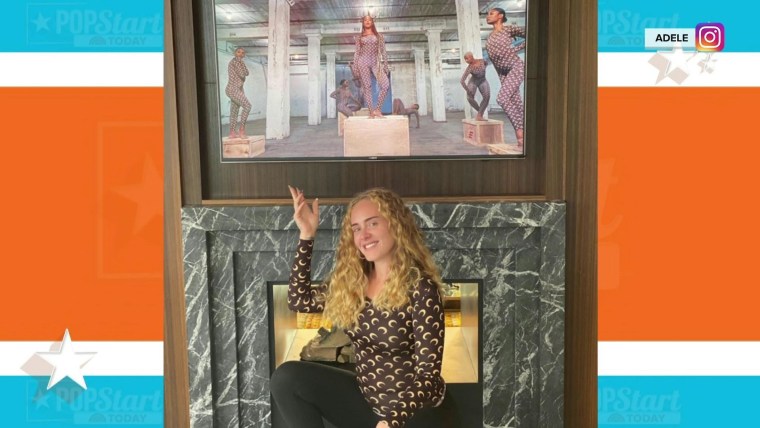“Happy what would be Notting Hill Carnival my beloved London,” the singer wrote in reference to the event that celebrates Britain’s Afro-Caribbean community in the capital each summer, cancelled this year due to the coronavirus pandemic.
Adele’s post racked-up more than five million “likes” online and sparked front-page headlines in British tabloids on Tuesday.
“It’s just a step too far … You’re trying too hard, sis,” said Rheana Petgrave, 25, a creative professional in London with Jamaican roots.
“Carnival is such a special thing … It’s one of our informal ties back to the island,” said Petgrave, also known as “Yardie Hijabi” who told NBC News she found the photo “offensive,” and that Adele should have used her platform more wisely.
Anthony Taylor, 29, a drag performer from Chicago known as “The Vixen” agrees that Adele’s post was problematic.
“It’s tone deaf to say the least,” Taylor told NBC News.
“These occasions where non-Black people choose to wear things or mimic a culture that has been mocked in so many ways throughout history, dismisses the value of our pasts.”
Black Americans wearing Bantu knots is often an “attempt to reconnect to a heritage that was stolen from us by white people,” he said. Adding, “to then see white people wearing that heritage feels very insulting.”
“We are still to this day shamed for our hairstyles and our features,” he added.
Download the NBC News app for breaking news and politics
Adele and her record company did not respond to request for comment by NBC News.
The debate has sparked further discussion on what Black culture means in Britain, the U.S. and countries in Africa.
In Lagos, Nigeria, Franklyne Ikediasor, 33, a marketing manager said the conversation was being driven by Black Americans who were appearing as “gate-keepers” of Black culture, which resulted in some push-back online.
“Because of how imperial America is … you end up exporting American political issues across the world,” he said. Adding that there was sometimes a “disconnect” between Black people in Africa and elsewhere, but agreed he felt “disappointed” by the singer’s post.
“Adele is everyone’s darling, I have her album,” he said.
“It feeds into a larger conversation, as a white person you want to participate in Blackness but not bear the brunt of Blackness,” he added.
The post comes at a time when identity and race are at the fore of public discourse after police killings of Black Americans this summer triggered Black Lives Matter protests on both sides of the Atlantic.
Many Black celebrities including model Naomi Campbell and actress Zoe Saldana supported Adele, underscoring that she was showing appreciation for Black culture.
Adele herself appeared to laugh off the attention, posting on Tuesday in Jamaican patois: “Wah Gwaan! Yow gyal, yuh look good enuh,” in the comments section of another musical post.
British lawmaker David Lammy, who represents Tottenham the diverse area of London that Adele grew-up in, also dismissed the criticisms.
“This humbug totally misses the spirit of Notting Hill Carnival,” he wrote on Twitter. “Adele was born and raised in Tottenham. She gets it more than most. Thank you, Adele. Forget the Haters.”













